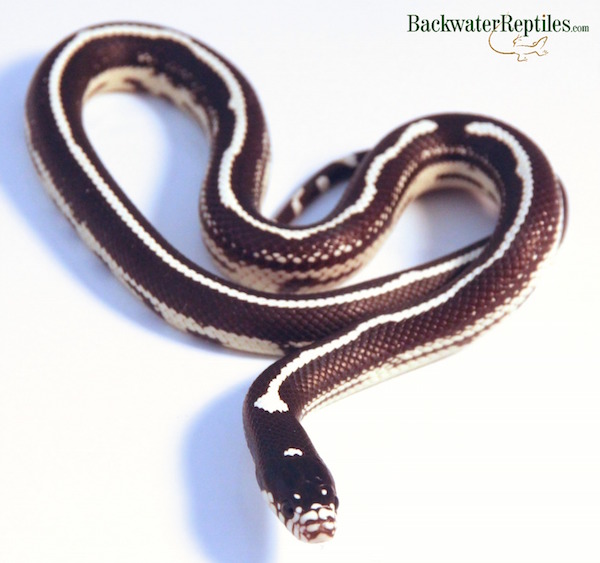California King Snakes (Lampropeltis g. californiae) are extremely popular pet snakes not only because they are very easy to care for and have pleasant personalities, but also because they are available in a seemingly endless variety of different morphs.
In this blog entry, we will describe and detail eight different Cal king snake morphs.
1. “Normal” California Kingsnake
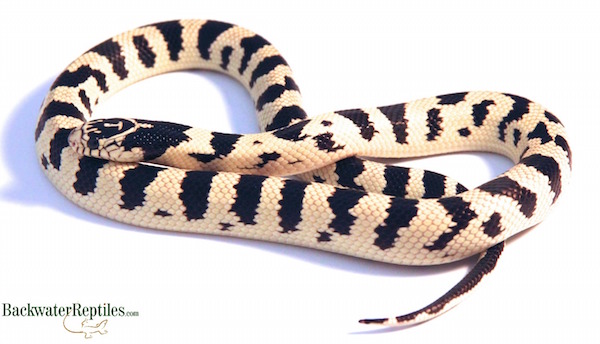
Normal king snakes can exhibit a wide array of stripes, bands, speckles, and colorations. They can stay in the black and white color spectrum or roll into the brown and red spectrum depending on where in the country the king snake originates from.

In banded king snakes, the lighter color forms bands around the snake’s body, like the one pictured in this series of photos, whereas in striped snakes, a stripe (or sometimes two) runs down the length of the top of the snake’s body.
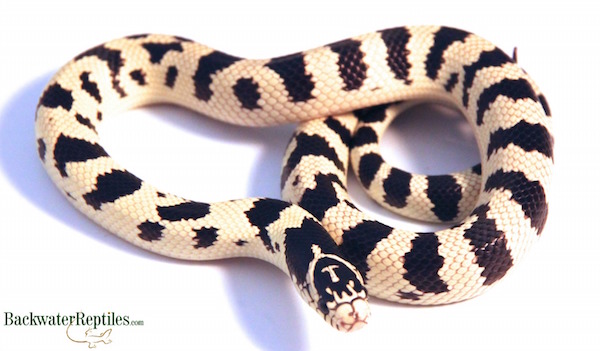
Even though “normal” California king snakes can be found in the wild, it’s still recommended to purchase a captive bred animal as you won’t run the risk of keeping an animal with parasites or health problems.
2. High Yellow Banana California Kingsnake

As its name suggests, the High Yellow Banana Cal King Snake has more of a yellowish main color than some of its paler morphed brethren.
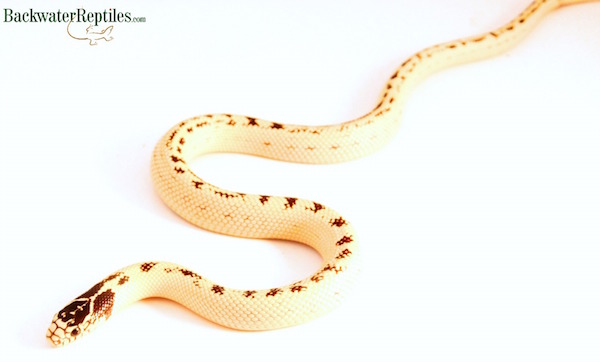
Bananas can express anywhere from a 70% to 95% yellow color, meaning that they can be 75% to 95% yellow with very little black banding or striping, depending on the heritage of the animal.
3. Albino California Kingsnake morph
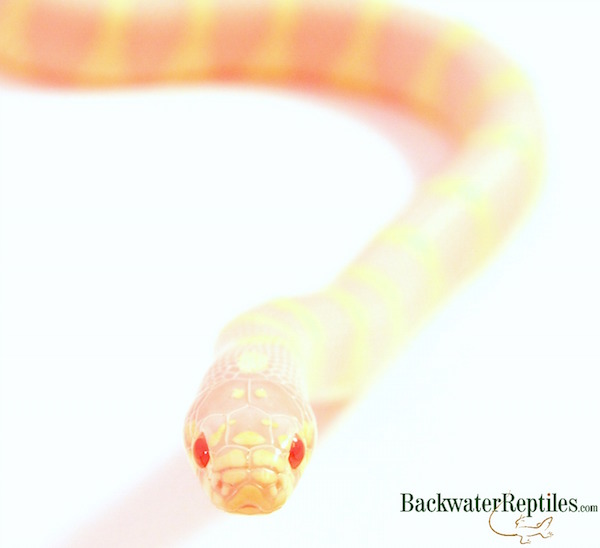
Like any albino animal, albino Cal Kings lack the pigment known as melanin in their scales. This causes their eyes to appear red because the blood vessels are visible and their scales to appear pink in color because the dark pigment is missing. As they age, albino Cal Kings’ pink scales will become white.
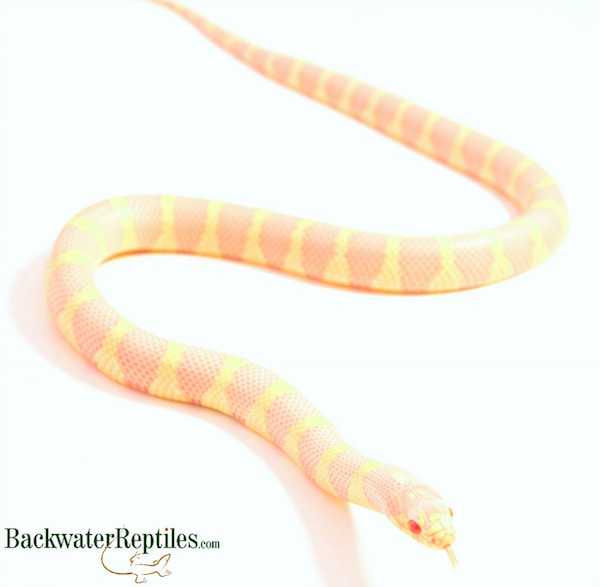
4. Chocolate California Kingsnake morph

As you can see from these pictures, a Chocolate morph of the Cal king snake is a deep, rich brown in color. The one in these photos still possesses a bit of a pattern, but it is muddied and hard to make out. As the breeding on this morph gets purer, eventually the markings disappear altogether creating what is called a “Patternless Chocolate” morph.
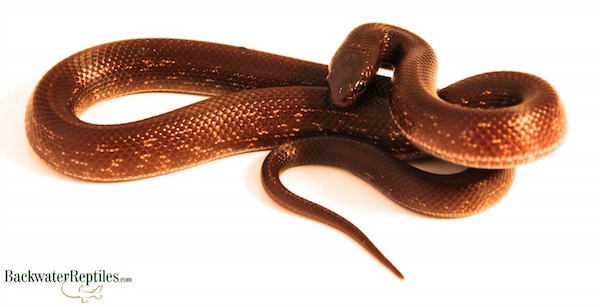
The darker coloration on the chocolates is caused by hypermelanism, which is essentially the opposite of albinism. Instead of lacking dark pigment and turning pink, chocolates possess much more melanin in their scales and are therefore darker in coloration.
5. Lavender California Kingsnake morph
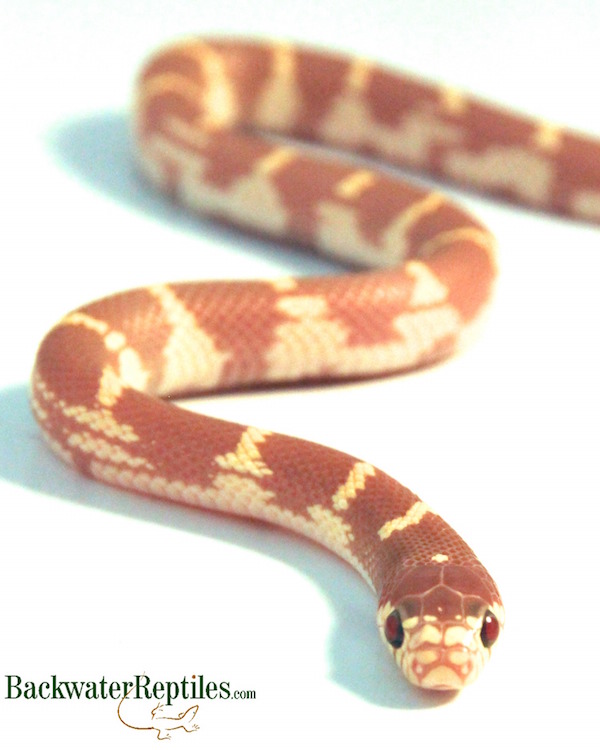
A Lavender Cal king is a slight variation of an albino. It is also called a “T-Positive Albino” morph because it possesses less melanin (dark pigment) in its scales than a normal snake, but still lacks enough to produce dark red eyes and a brownish-pinkish scale color.

6. Reverse Stripe California Kingsnake morph

When breeders attempt to mate Cal Kings to produce a reverse striped animal, the goal is to make a white animal with a black or brown stripe running down the back. This morph can not only possess a stripe, but often they have dots, dashes, and other spots or marks on their sides, like the one we have pictured.

7. Black and White Striped California Kingsnake

Black and white striped Cal Kings are pretty accurately described by their morph name. As the photos show, these snakes express only black and white coloration. No yellow and no brown is present.
It should also be noted that instead of bands, black and white striped Cal Kings have a stripe or two running the length of their back.
8. High White California Kingsnake
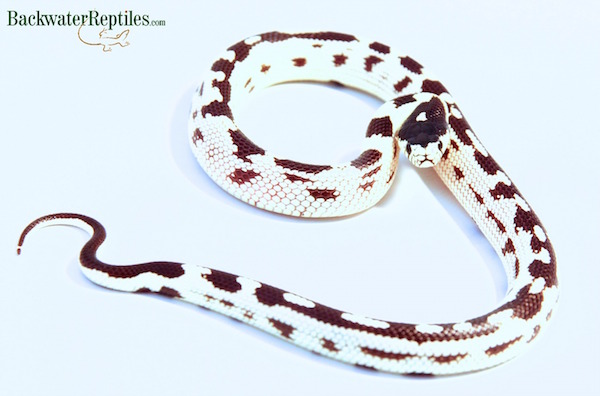
High Whites are known for the brilliant contrast of white against black pigment in the scales. Normal Cal Kings possess a tinge of yellow, but High Whites are a true white in color. If black markings are present at all, it will be around the head and the top of the tail and the black will be a very dark, “true” black. This is a very popular morph within the reptile industry.
It’s interesting to note that High White Cal Kings are also referred to by some as “Snow” California King Snakes.

This list of Cal Kings morphs is by no means all inclusive. There are many other varieties and mixtures of morphs that create “designer” king snakes. We’ve just gone over the basics and hope that it is helpful to potential Cal King owners when choosing a pet king snake.
Backwater Reptiles currently offers many different morphs of California King Snakes for sale. If you know of one you don’t see on our website, email us and we’ll try to get it for you.

